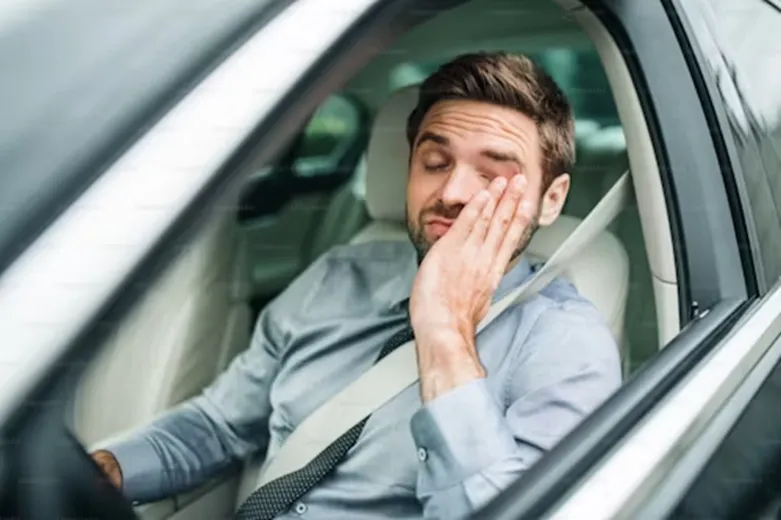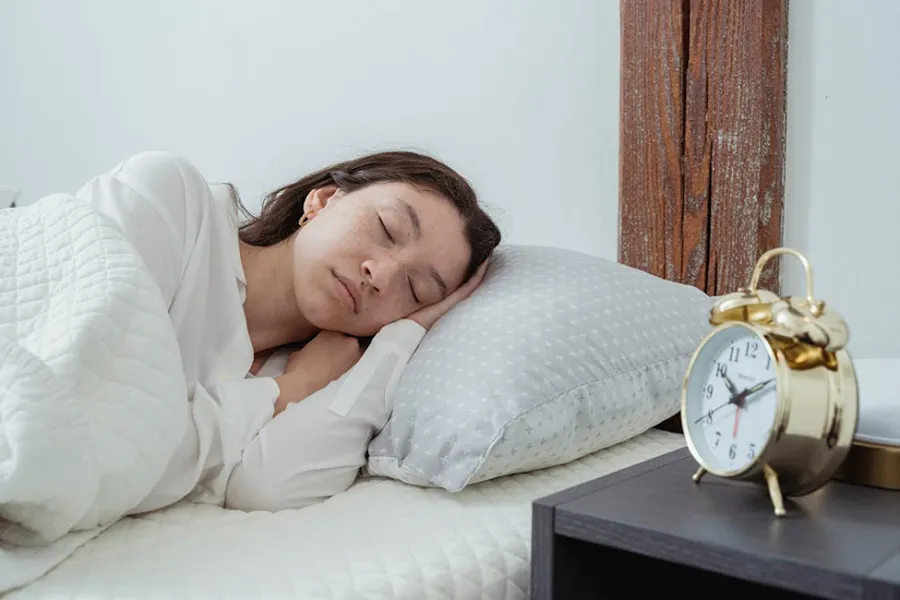Sleep Science: Myths vs Facts
How much do you know about sleep? You know it’s important, but do you know the facts from the myths? Keep reading to learn about how much sleep you need, how this changes as you age, how alcohol impacts sleep, and lots more!
Myth: Lots of People Can Function Well on 6 Hours of Sleep or Less
Fact:
The vast majority of people require at least 7 hours of sleep each night to remain healthy and productive (1). Consistently sleeping less than 6 hours per night has been proven to increase your risk of mortality, obesity, cardiovascular disease, diabetes and dementia, among other conditions (2, 3). Additionally, just a few nights of poor sleep can cause difficulty with focus, attention, decision making and emotion regulation (3).
There is a real, but very rare, phenomenon where a genetic mutation can cause an individual to function well on 6 hours of sleep or less per night (4). This is called being a Natural Short Sleeper. Although many people will claim to be in this group, it is an extremely rare condition that applies to much less than 1% of the population. Only about 50 families have been identified so far who fit this condition (4).
If you find that you sleep for 7 hours or more when given the opportunity, such as on the weekend, then you are unlikely to have this mutation and should be aiming to get at least 7 hours of sleep each day. This is one of the best ways to promote good health, both physical and mental.
Myth: You Can Catch Up on Missed Sleep on the Weekend
Fact:
A sleep debt or sleep deficit can build up during the week when you get less sleep than you need (5). You can partially ‘catch up’ on the weekend by sleeping in, but depending on how restricted your sleep was during the week, two days of ‘catch up’ may not be enough to counteract the negative effects of the week of poor sleep.
A study from 2021 found that participants who slept around 5 hours a night for 10 days performed worse on a cognitive test during this period (6). Once they were able to sleep as long as they wanted, their results on the test improved. However, even after a full week of recovery sleep, results were still not as high as at baseline (before the 10 days of restricted sleep).
Restricted sleep has an impact on memory, reaction time, productivity, focus and many other aspects of our health. It is best to avoid a sleep debt altogether by getting 7 to 9 hours of sleep each night during the week. If you are not able to meet this target, getting recovery sleep on the weekend isn’t a bad idea, but it may not be enough to completely reset your body and brain.
Myth: Alcohol Can Help You Get a Better Sleep
Fact:
Even a small amount of alcohol can compromise the quality of your sleep. You might feel like alcohol helps you fall asleep faster, or sleep more deeply, but it is causing effects on the quality of your sleep that you may not be observing. The Sleep Foundation explains that more than one drink for women, and more than two drinks for men leads to a 39% reduction in sleep quality (7)!
The more alcohol you drink, the worse the impact on sleep will be, but even a single drink has an effect. Experts recommend avoiding alcohol 3 hours before bedtime (7), but avoiding it altogether is often best. If you have a sleep disorder such as insomnia or sleep apnea, avoiding alcohol should be one of your first courses of action to reduce symptoms.
Myth: Driving While Tired Isn’t a Big Deal
Fact:
Drowsy driving can pose a huge risk to your own safety and the safety of others on the road. When you drive while tired, you have a slower reaction time, you may weave between lanes, and you may make more risky decisions (8). Microsleeps can also increase your risk for an accident. Microsleeps occur when your eyes close for only a couple of seconds and your brain briefly enters a sleep state. You may not even realize this is happening, but a couple of seconds with your eyes off the road is enough to cause an accident, especially at high speeds.
It is common knowledge that driving while under the influence of drugs or alcohol is very dangerous. But did you know that after 24 hours of being awake, your body and brain are just as impaired as with a blood alcohol content of 0.1 %, which is over the legal limit (8)?
If you feel yourself yawning, drifting between lanes, having difficulty focusing, or blinking frequently, it means you are too tired to be driving and should get off the road. Take a quick nap or grab a coffee and only start driving again when you feel more alert.
Myth: Adults Need Less Sleep as They Get Older
Fact:
Aging does not reduce the amount of sleep that is required. It is recommended that adults over 55 years continue to get 7 to 9 hours of sleep each night, which is the same recommendation for younger adults (9). Many factors can make it more difficult to get enough sleep as we age. These include a changing circadian rhythm, medication side effects, pain, health issues, and nighttime urination (9). However, it is important to find solutions to these common problems in order to maintain good sleep.
Getting high quality sleep in older age can be aided by getting regular exercise, maintaining a consistent sleep/wake schedule, getting lots of sunlight during the day, and avoiding caffeine later in the day (9).
Conclusion
There is a lot of misinformation out there about sleep, just like there is with nutrition or exercise. Knowing the facts is important, so we hope this blog helped to clear up a few things. Remember that adults of all ages need at least 7 hours of sleep per night, and getting less can cause negative impacts to health and performance. Alcohol in any amount can decrease the quality of your sleep and driving while tired can sometimes be as dangerous as driving while drunk. Finally, you can partially recover lost sleep on the weekend, but it might not be enough to counteract a significant sleep debt.
A note on our references: The main references for this blog are from the Sleep Foundation website. The Sleep Foundation is dedicated to providing information about all aspects of sleep. All of its articles and content are medically reviewed by doctors and scientists who are experts in the study of sleep, psychology and neuroscience. You can learn more at the links below.
References:
- Sleep Foundation: How Much Sleep Do You Need?
- Study: Short sleep duration and health outcomes (Itani et al., 2017)
- Sleep Foundation: How Lack of Sleep Impacts Cognitive Performance and Focus
- Sleep Foundation: Short Sleepers
- Sleep Foundation: Sleep Debt and Catch-Up Sleep
- Study: Observing changes in human functioning during induced sleep deficiency and recovery periods (Ochab et al., 2021)
- Sleep Foundation: Alcohol and Sleep
- Sleep Foundation: Drowsy Driving vs. Drunk Driving
- Sleep Foundation: Aging and Sleep



